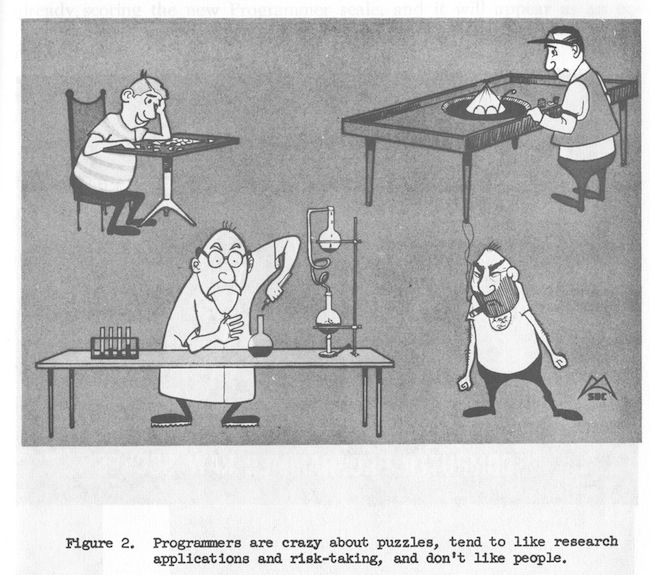… is the person who runs one.
I came across this advertisement for the Electronic Computer Programming Institute (ECPI) in the September 16, 1966 issue of Life Magazine. It is particularly notable for the way in which it plays on fears of technologically-driven unemployment: “For all the people the computer puts out of a job, it can put more people into new ones.”
During the mid-to-late 1960s, vocational schools offering training in computing sprung up all over the country, appealing to the massive growth of the computer industry and the desperate need for programmers to develop software for them. Some of these schools were legitimate attempts to provide much needed training in computing; others were fly-by-night operations that played on vulnerable populations (the un- or under-employed, women seeking to reenter the labor market after taking time off to have children). All promised a high-paying job after graduation. Most relied on some form of aptitude testing as an admissions criteria (although many admitted students regardless of their scores, with the sole condition that they were able to pay). Many did not even provide hands-on time with an actual computer, or at best provided an hour or two of time on a leased machine.1 Edward Markham, “EDP Schools: An Inside View”, Datamation 14:4 (1968)
- 1Edward Markham, “EDP Schools: An Inside View”, Datamation 14:4 (1968)


 Follow
Follow

